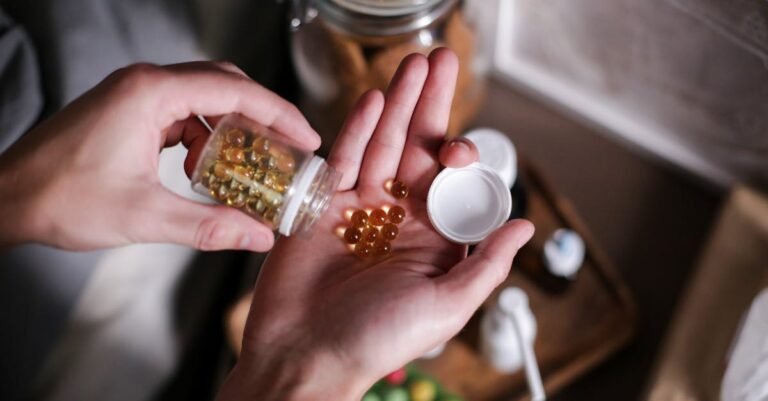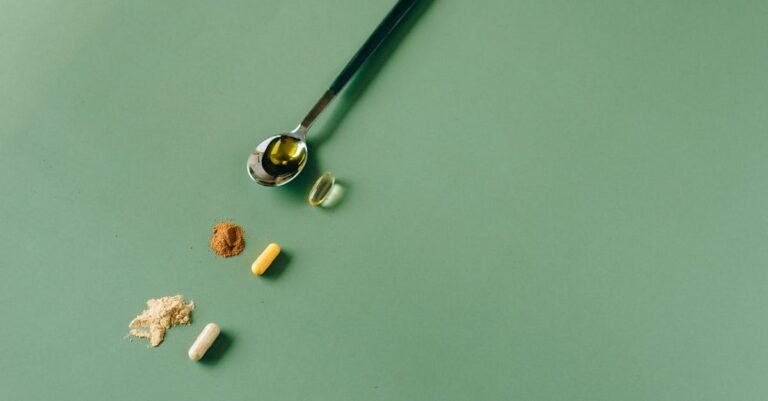Table of Contents
- Best Keratin Supplements for Hair Repair: Your Ultimate Guide
- Understanding Keratin: The Building Block of Your Hair
- Can Supplements Really Boost Hair Keratin?
- Key Ingredients to Look For in Keratin Supplements
- Top Keratin Supplement Picks (Focus on Types & Ingredients)
- Beyond Supplements: Holistic Hair Repair Strategies
- Setting Realistic Expectations: What Supplements Can and Can’t Do
- Conclusion: Investing in Your Hair’s Future
- Frequently Asked Questions (FAQs)
- FAQ 1: How long does it take to see results from keratin supplements?
- FAQ 2: Are there any side effects to taking keratin supplements?
- FAQ 3: Can I take keratin supplements if I have a keratin treatment?
- FAQ 4: Are vegan keratin supplements effective?
- FAQ 5: Do keratin supplements work for all hair types?
Best Keratin Supplements for Hair Repair: Your Ultimate Guide
Let’s talk hair. We all want that strong, shiny, healthy looking mane, right? But life happens. Heat styling, coloring, even just the environment can leave our locks looking a little… sad. Brittle, frizzy, prone to breakage – sound familiar? If you’re nodding along, you’ve probably stumbled upon the term “keratin” in your quest for hair salvation. Maybe you’ve even considered keratin treatments. But what about tackling the issue from the inside out? Enter keratin supplements.
The market is flooded with pills and powders promising Rapunzel like results. But do they actually work? Can popping a supplement really mend damaged hair and restore its former glory? We’re diving deep into the world of keratin supplements for hair repair. Forget the marketing hype; we’re going to explore what keratin is, why your hair might be lacking it, whether supplements can truly help, what ingredients actually matter, and how to choose the best approach for your hair goals. Ready to untangle the facts?
Understanding Keratin: The Building Block of Your Hair
Before we even think about supplements, let’s get friendly with the star of the show: keratin. You hear the word thrown around a lot in hair commercials, but what is it, really?
What Exactly is Keratin?
Think of keratin as the main protein that makes up your hair, skin, and nails. It’s a fibrous, protective protein, incredibly tough and insoluble. Imagine it like the microscopic scaffolding or the bricks and mortar that give your hair its structure, strength, and resilience. Your hair shaft is primarily composed of dead keratin cells, tightly packed together and covered by an outer layer called the cuticle (which also contains keratin). When this structure is intact and healthy, your hair looks smooth and shiny because the cuticle lies flat, reflecting light. When it’s damaged, the “bricks” are crumbling, and the cuticle lifts, leading to dullness, frizz, and breakage. So, yeah, keratin is pretty darn important for happy hair.
Why Does Hair Keratin Deplete?
If our hair is made of keratin, why does it get damaged? Shouldn’t it be naturally strong? Well, while keratin is tough, it’s not indestructible. Several factors can chip away at this protein structure, leaving your hair weakened and vulnerable.
Heat Styling Damage
Your beloved flat iron, curling wand, and even your hairdryer (especially on high heat) can be major culprits. Excessive heat literally cooks the keratin protein in your hair, altering its structure and creating weak points. Think of it like overcooking spaghetti; it loses its structure and becomes mushy and easy to break. Repeated heat exposure degrades the keratin, strips away moisture, and lifts the cuticle layer, leading to that dreaded fried look and feel.
Chemical Treatments
Coloring, bleaching, perming, and relaxing treatments work by chemically altering the hair’s structure to achieve the desired look. Unfortunately, these processes often involve breaking down the disulfide bonds within the keratin structure. While necessary for the treatment to work, this inherently weakens the hair shaft. Bleaching is particularly harsh, as it strips pigment by opening the cuticle and breaking down natural melanin and proteins, including keratin, leaving the hair porous and fragile.
Environmental Factors
It’s not just what we do to our hair, but also what it’s exposed to daily. Sun exposure (UV damage), pollution, chlorine from swimming pools, and even hard water can gradually degrade keratin and strip the hair of its natural oils. These environmental aggressors can cause oxidative stress, breaking down the protein structure over time, much like how the sun can fade the paint on a car.
Can Supplements Really Boost Hair Keratin?
Okay, so we know keratin is vital, and we know it can get damaged. The million dollar question is: can taking a keratin supplement magically patch up the damage or build new, stronger keratin from the inside? It’s a bit more complex than a simple yes or no.
The Science Bit: How Supplements Work (or Don’t)
Here’s the thing: you don’t directly absorb a whole keratin protein from a supplement and transport it straight to your hair follicle to patch things up. Our bodies don’t work quite like that. When you ingest proteins, including keratin (often in a “hydrolyzed” form, meaning broken down into smaller pieces), your digestive system breaks them down further into their fundamental building blocks: amino acids.
These amino acids are then absorbed into your bloodstream and transported throughout your body, where they can be used for various functions, including – potentially – building new proteins like the keratin in your hair follicles. So, the theory behind many “keratin” supplements isn’t necessarily about supplying whole keratin, but rather about providing the specific amino acids and supporting nutrients (like vitamins and minerals) that your body needs to synthesize its own keratin efficiently. Think of it less like patching a hole with pre made bricks and more like providing the brick factory (your body) with the raw clay (amino acids) and energy (vitamins/minerals) it needs to produce new, strong bricks.
Some supplements contain specific, patented forms of solubilized or hydrolyzed keratin that claim better bioavailability and may provide peptide fragments that signal certain cellular activities. However, the primary mechanism is still largely believed to be providing the necessary precursors for your body’s natural production cycle.
Keratin Supplements vs. Keratin Treatments: What’s the Difference?
This is a crucial distinction! They sound similar, but they work in completely different ways.
- Keratin Treatments (Salon): These are topical chemical treatments applied directly to the hair. They typically involve coating the hair shaft with a keratin solution (often containing formaldehyde derivatives or alternatives) and then sealing it in with heat. This process smooths the hair cuticle, fills in porous spots temporarily, and reduces frizz, giving the appearance of healthier, shinier hair. It’s essentially a cosmetic fix that coats the existing hair; it doesn’t change the hair growing from the follicle. The effects are temporary and wash out over time.
- Keratin Supplements (Oral): These are ingested pills, powders, or gummies designed to work from the inside out. The goal is to provide nutrients that support your body’s ability to produce its own healthy keratin for new hair growth. They aim to improve the quality of the hair as it grows from the scalp, rather than coating existing damaged strands. The effects, if any, take time to become noticeable as new, healthier hair grows out.
Think of it like this: a keratin treatment is like applying a smoothing primer and foundation to your skin to cover imperfections temporarily. A keratin supplement is like improving your diet and skincare routine to promote healthier skin from within over the long term.
Key Ingredients to Look For in Keratin Supplements
Since supplements work by providing building blocks and support nutrients, the ingredient list is everything! Not all “keratin” supplements are created equal. Here’s what to keep an eye out for:
Hydrolyzed Keratin: The Star Player?
This is often the headliner ingredient. As mentioned, “hydrolyzed” means the large keratin protein molecule has been broken down enzymatically or chemically into smaller peptides and amino acids. The idea is that these smaller fragments are more easily absorbed by the body. Some specific patented forms, like Cynatine HNS®, are backed by studies suggesting they can be incorporated into hair, skin, and nails, potentially reducing hair loss and improving strength and shine. While promising, remember your body will still break these down further. The benefit might lie in providing a concentrated source of the specific amino acids found in keratin.
Biotin: The Hair Growth Staple
You can’t talk about hair supplements without mentioning biotin (Vitamin B7). Biotin plays a crucial role in the production of keratin. While true biotin deficiency is rare in developed countries (and deficiency does cause hair loss), many believe that supplementing with extra biotin can support healthier, stronger hair growth. It’s often included in keratin formulas because it’s essential for the infrastructure keratin relies on. While mega doses aren’t necessarily better unless you’re deficient, having adequate biotin is certainly important for the keratin production process.
Vitamins and Minerals: The Supporting Cast (Vitamin C, Zinc, B Vitamins)
Keratin synthesis doesn’t happen in a vacuum. It requires a team effort from various vitamins and minerals:
- Vitamin C: A powerful antioxidant that helps protect hair follicles from oxidative stress. Crucially, it’s also essential for collagen production, and collagen plays a role in anchoring the hair follicle in the dermis.
- Zinc: Plays a vital role in hair tissue growth and repair. It also helps keep the oil glands around the follicles working properly. Zinc deficiency is clearly linked to hair loss.
- B Vitamins (besides Biotin): Niacin (B3), Pantothenic Acid (B5), B6, and B12 all play roles in metabolism, energy production, and the creation of red blood cells, which deliver oxygen and nutrients to the hair follicles – essential processes for healthy hair growth.
Think of these as the essential tools and energy sources the construction crew (your body) needs to build the keratin structure effectively.
Amino Acids: The True Building Blocks
Since keratin is a protein, it’s made up of amino acids. Providing these directly can be a very effective strategy. Key amino acids for keratin production include:
- Cysteine: This sulfur containing amino acid is a major component of keratin. The sulfur atoms in cysteine form strong disulfide bonds, which give keratin its strength and rigidity. Providing cysteine (often in the form of N Acetyl Cysteine or L Cysteine) gives your body a direct supply of this crucial building block.
- Methionine: Another essential sulfur containing amino acid that the body can use to produce cysteine.
- Proline, Glycine, Alanine: Other amino acids found in significant amounts within the keratin structure.
Supplements focusing on providing a broad spectrum of these key amino acids, especially cysteine, are essentially giving your body the exact raw materials needed for the job.
Top Keratin Supplement Picks (Focus on Types & Ingredients)
Instead of naming specific brands (which can change formulations or become unavailable), let’s focus on the types of effective supplements based on the ingredients we just discussed. When shopping, look for formulas that fit these profiles:
Supplements Rich in Hydrolyzed Keratin
Look for supplements that feature a clinically studied form of solubilized or hydrolyzed keratin, like Cynatine HNS® or KeraGLO®. These often come with research (though sometimes funded by the manufacturer) suggesting specific benefits for hair strength, brightness, and reduced shedding. They provide a direct, albeit broken down, source of keratin peptides and amino acids. These are often positioned as premium options.
Formulas Focusing on Keratin Precursors (Amino Acids)
These supplements prioritize providing the raw materials. Look for formulas high in L Cysteine or N Acetyl Cysteine (NAC), Methionine, and potentially other amino acids like Proline and Glycine. They might also include Biotin and Zinc to support the synthesis process. This is a more fundamental approach – giving the body the essential components it needs to build its own keratin efficiently.
Comprehensive Hair Health Blends
Many supplements take a broader approach, combining several key ingredients. These might include a moderate dose of hydrolyzed keratin, essential amino acids (like Cysteine), Biotin, a range of B vitamins, Vitamin C, Zinc, and sometimes other beneficial ingredients like horsetail extract (for silica), MSM (Methylsulfonylmethane, a source of sulfur), or antioxidants. This “shotgun” approach aims to cover multiple bases, supporting not just keratin production but overall follicular health and growth cycles. These are often marketed as “Hair, Skin, and Nails” formulas.
The “best” type for you depends on your specific needs and philosophy. Do you want the potential direct benefit of hydrolyzed keratin peptides, or do you prefer to focus on providing the fundamental building blocks and support nutrients?
Beyond Supplements: Holistic Hair Repair Strategies
Listen, supplements can be a helpful piece of the puzzle, but they aren’t magic bullets. You can’t pop a pill and then continue frying your hair with bleach and heat styling, expecting miraculous results. True hair repair requires a multi pronged approach.
Diet: Eating Your Way to Stronger Hair
What you eat profoundly impacts your hair health. Your hair follicles need a steady supply of nutrients to build strong keratin. Focus on a balanced diet rich in:
- Protein: Since hair is mostly protein, ensure adequate intake from sources like lean meats, poultry, fish, eggs, legumes, tofu, and Greek yogurt.
- Iron: Iron deficiency (anemia) is a major cause of hair loss. Include iron rich foods like red meat, spinach, lentils, and fortified cereals. Vitamin C helps iron absorption!
- Omega 3 Fatty Acids: Found in fatty fish (salmon, mackerel), flaxseeds, chia seeds, and walnuts, these fats support scalp health.
- Biotin Rich Foods: Eggs (especially yolks), nuts, seeds, sweet potatoes, and avocados.
- Zinc Sources: Oysters, beef, pumpkin seeds, lentils.
- Vitamin C Rich Foods: Citrus fruits, berries, bell peppers, broccoli.
Supplements can help fill nutritional gaps, but they can’t replace a fundamentally poor diet. You need the whole orchestra of nutrients, not just a few soloists.
Hair Care Habits: Protecting Your Strands
This is about minimizing further damage and protecting the hair you have (and the new hair growing in):
- Reduce Heat Styling: Give your hair breaks from hot tools. When you do use heat, always apply a heat protectant spray first and use the lowest effective temperature setting.
- Be Gentle: Avoid harsh brushing, especially when wet (use a wide tooth comb). Don’t wear super tight hairstyles constantly, as this can cause traction alopecia. Use soft hair ties.
- Smart Cleansing: Don’t overwash your hair, which strips natural oils. Use sulfate free shampoos if your hair feels dry or brittle. Condition well, focusing on the mid lengths and ends.
- Protect from Elements: Wear a hat in strong sun or use UV protective hair products. Rinse hair after swimming in chlorine or saltwater.
- Consider Bonding Treatments: Products designed to rebuild broken disulfide bonds (different from keratin treatments) can help repair damage from chemical services or heat.
Combining internal support (diet, supplements) with external protection (gentle hair care) gives you the best chance for noticeable improvement.
Setting Realistic Expectations: What Supplements Can and Can’t Do
It’s crucial to keep expectations in check. Keratin supplements are not an overnight fix for years of damage.
- They work on NEW growth: Supplements primarily influence the quality of the hair being produced by the follicle *now*. They can’t magically infuse keratin into the already existing, damaged lengths of your hair. That part needs to be managed with gentle care, conditioning treatments, and eventually, trimming.
- Results take time: Hair grows relatively slowly (about half an inch per month, on average). You’ll likely need to take a supplement consistently for at least 3 to 6 months to see noticeable changes in the new hair growing in closer to the scalp – think improved strength, possibly better texture or shine.
- They can’t fix everything: If your hair issues stem from underlying medical conditions (like thyroid problems or hormonal imbalances), genetic factors, or medication side effects, supplements alone are unlikely to solve the problem. It’s essential to address the root cause with a healthcare professional.
- Consistency is key: Skipping doses or only taking them for a few weeks won’t yield results. You need to be consistent to provide your body with a steady supply of the nutrients.
Think of supplements as a long term investment in the *future* health of your hair, supporting the growth of stronger, more resilient strands from the root.
Conclusion: Investing in Your Hair’s Future
So, are keratin supplements the secret weapon for repairing damaged hair? Well, they can certainly be a valuable ally when chosen wisely and used correctly. By providing key building blocks like amino acids (especially cysteine) and essential support nutrients like biotin, zinc, and vitamins, they can help your body optimize its own keratin production. This translates to potentially stronger, healthier, more resilient hair growth over time.
Remember, though, they work from the inside out on new growth and are most effective as part of a holistic approach. Combining a quality supplement focused on the right ingredients with a hair healthy diet and gentle hair care practices offers the most promising path to repairing damage and achieving the strong, vibrant hair you’re aiming for. It takes patience and consistency, but investing in your hair’s health from the follicle up is a strategy that pays off in the long run. Choose your supplement based on its ingredient profile, commit to taking it consistently, be kind to your existing strands, and watch your hair’s future brighten.
Frequently Asked Questions (FAQs)
FAQ 1: How long does it take to see results from keratin supplements?
Patience is key! Because supplements work by supporting new hair growth from the follicle, you won’t see changes overnight. Hair grows about half an inch per month. Most people need to take keratin supplements consistently for at least 3 to 6 months to notice improvements in the strength, texture, or reduced shedding of the new hair emerging from the scalp.
FAQ 2: Are there any side effects to taking keratin supplements?
Generally, keratin supplements containing amino acids, vitamins, and minerals are well tolerated when taken at recommended doses. However, some people might experience mild digestive upset (like nausea or bloating), especially initially. Very high doses of certain individual nutrients (like biotin) can sometimes interfere with lab tests, so always inform your doctor about any supplements you’re taking. If the supplement contains ingredients derived from common allergens (like shellfish, soy, or wheat), check the label carefully if you have sensitivities.
FAQ 3: Can I take keratin supplements if I have a keratin treatment?
Yes, you generally can. They work in completely different ways. A keratin treatment is a topical chemical process that smooths existing hair, while a keratin supplement works internally to support new hair growth. Taking a supplement won’t interfere with your salon treatment, and it might even help improve the quality of the hair that grows in after the treatment eventually washes out.
FAQ 4: Are vegan keratin supplements effective?
True keratin protein is animal derived (usually from wool, feathers, or horns). Therefore, strictly speaking, there’s no “vegan keratin.” However, many effective “vegan keratin booster” supplements exist. These work by providing plant derived amino acids (especially cysteine precursors), biotin, vitamins, minerals, and botanical extracts (like bamboo for silica) that give your body the necessary components to build its own keratin. So yes, a well formulated vegan supplement focusing on keratin precursors can definitely be effective.
FAQ 5: Do keratin supplements work for all hair types?
The fundamental building blocks and nutrients needed for keratin production are the same regardless of whether your hair is straight, wavy, curly, or coily; fine or coarse. Therefore, keratin supplements can potentially benefit all hair types by supporting the production of stronger, healthier hair from the follicle. However, the visible results and the time it takes to see them might vary based on your hair’s natural growth cycle, texture, and existing level of damage.










